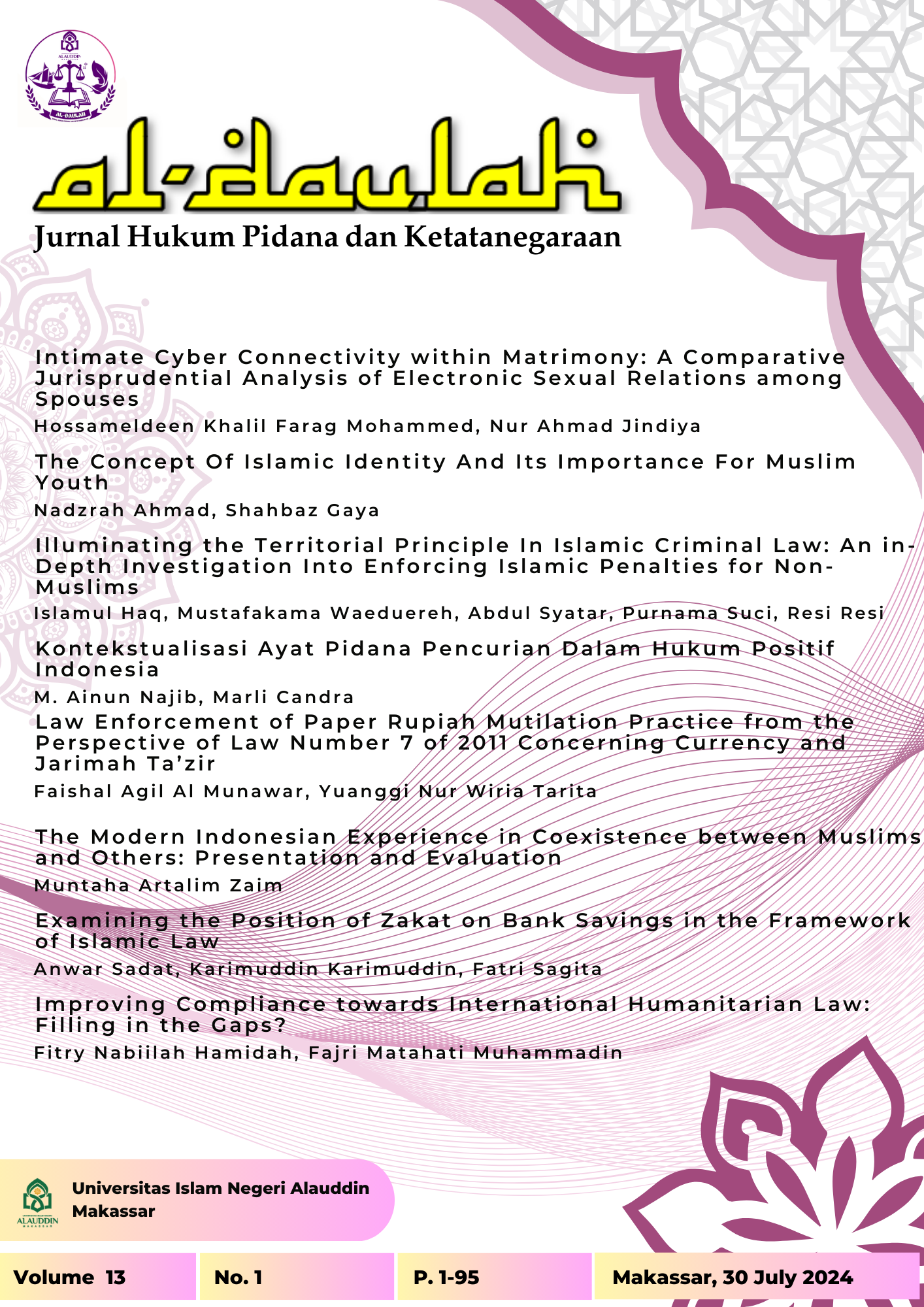Respon Pemerintah Indonesia Terhadap Hak Asasi Anak dalam Konvensi Internasional (Refleksi Ius Constitutum dan Prospek Ius Constituendum)
Abstrak
Children’s rights are well-established through various international conventions. But, the international conventions do not well implemented in Indonesian law. Besides that, international convention is often interpreted differently in Indonesian law. To guarantee children’s rights, the government and society of Indonesia must be effort to implement international conventions already ratified correctly.
Referensi
Baehr, Peter, et al., (Terj. Burhan Tsani dan S. Maimoen), 1997, Instrumen Internasional Pokok Hak-Hak Asasi Manusia, Yayasan Obor Indonesia, Jakarta.
Irwanto, et al., 1995, Pekerja Anak di Tiga Kota Besar: Jakarta, Surabaya, Medan, Seri Penelitian Pusat Penelitian Unika Atma Jaya, Jakarta.
Istanto, F. Sugeng, 2010, Hukum Internasional, Universitas Atmajaya, Yogyakarta.
Mangunwijaya, Y.B., 1998, Menuju Indonesia Serba Baru, Gramedia Pustaka Utama, Jakarta.
Suseno, Franz Magnis, 1994, Etika Politik: Prinsip-Prinsip Moral Dasar Kenegaraan Modern, Gramedia Pustaka Utama, Jakarta.
Mohtar Kusumaatmadja, 1986, Konvensi-Konvensi Palang Merah Tahun 1949, Binacipta, Bandung.
Tjandraningsih, Indrasari, 1995, Pemberdayaan Pekerja Anak: Studi Mengenai Pendampingan Pekerja Anak, Yayasan AKATIGA, Bandung.
The authors of a work hold the copyright and grant the Al-Daulah: Jurnal Hukum Pidana dan Ketatanegaraan the right of first publication. The work is also licensed under the Creative Commons Attribution License (CC BY 4.0), which enables others to share the work while acknowledging the authorship and initial publication in the journal. The authors can make separate contractual agreements for the non-exclusive distribution of the published version of the work, such as by posting it to an institutional repository or editing it for a book, with an acknowledgment of its initial publication in this journal. Authors are allowed and encouraged to post their work online, such as in institutional repositories or on their website, before and during the submission process. This can lead to productive exchanges and greater citation of the published work.


